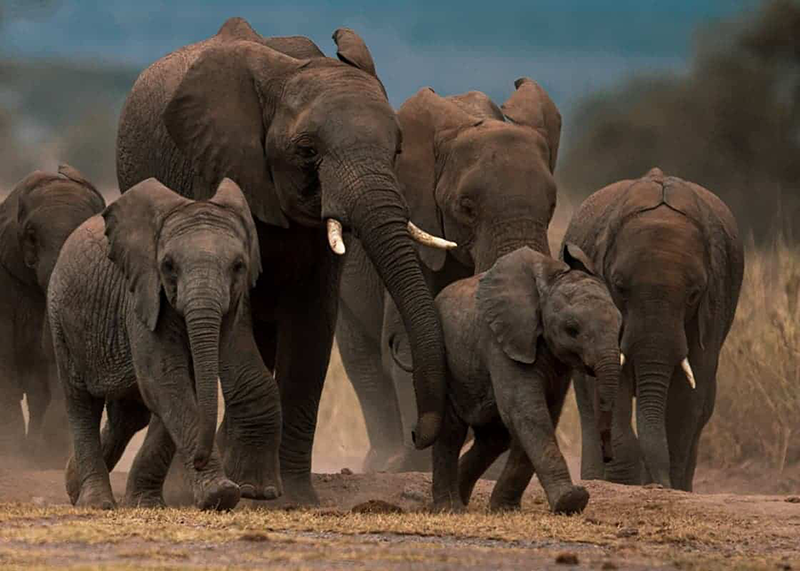- News
- No Comment
Officialising the killing of elephants – Zimbabwe under fire over planned cull

Zimbabwe is planning to cull dozens of elephants to address food shortages in drought-hit areas of the country, taking a contentious leaf out of another African nation Namibia’s book.
The Zimbabwean government has confirmed that the proposal is on the table, with Sithembiso Nyoni, the minister for environment, climate and wildlife, telling lawmakers that the country has “more elephants than our forests can accommodate.”
He said discussions were ongoing about the logistics of providing dried elephant meat “to some communities that need the protein.”
Zimbabwe is among five southern African countries bearing the brunt of an El Nino-induced drought that, according to the World Food Program (WFP), has left millions facing food insecurity.
The UN agency has warned that “an estimated 6 million Zimbabweans are expected to be food insecure during the 2024-2025 lean season,” typically from November to March.
In urban areas, some 1.7 million people, or 35% of the urban population, will be food insecure this year, according to WFP projections.
‘Ill-conceived and very unfortunate’
As in Namibia’s case, the decision has sparked fierce criticism from various circles, not least conservationists and wildlife experts.
Zimbabwe has approximately 100,000 elephants, the most in the world after neighboring Botswana, and last culled its tuskers nearly four decades ago.
For Farai Maguwu, director of the non-profit Center for Natural Resource Governance, the government’s decision is “ill-conceived and very unfortunate.”
“Officializing the killing of elephants, I think, is one of the most disastrous decisions ever made in the history of conservation,” he told Anadolu.
“It puts an abrupt end to all the conservation efforts the government has invested so much in for the past three decades. It’s going to open the floodgates to poaching.”
Regarding the government’s claim of having an excess of elephants, he advised authorities to utilize Zimbabwean “regions that are not populated and … move the excess elephants to such areas instead of killing them.”
Natirai Mudadi, an animal rights defender based in the capital Harare, views the culling plan as “a violation of the rights of these animals.”
“Instead of killing them, authorities could be exporting the excess elephants to countries with few of these animals,” he told Anadolu.
“Also, what happens if the drought continues or worsens? Would we just keep killing more and more elephants?”
‘Government can cut back its unnecessary spending’
Political analyst Rashweat Mukundu questioned the feasibility of the entire plan, saying it “defies logic.”
Instead, he called for a more practical approach to address the situation, beginning with cuts to government expenditure.
“If the government can cut back on some of its own unnecessary expenses, like travel, the bloated civil service, or resources put towards suppressing opposition, then Zimbabwe has enough resources to feed its own people,” he told Anadolu.
“To say that we want to cull elephants to feed ourselves, I think it’s too much of a dramatization by the Zimbabwean government.”
That is a sentiment widely echoed by citizens on social media, where users have been calling out the government’s excessive spending on things such as cars and other luxuries.
Others in areas actually affected by drought are also not convinced by the government strategy.
“What we want and need is maize meal,” said Lyn Mukaro, a resident of Epworth, a poor urban settlement east of Harare.
“That’s what we have always depended on for sustenance. We can do without elephant meat, but we can’t do without maize meal.”
